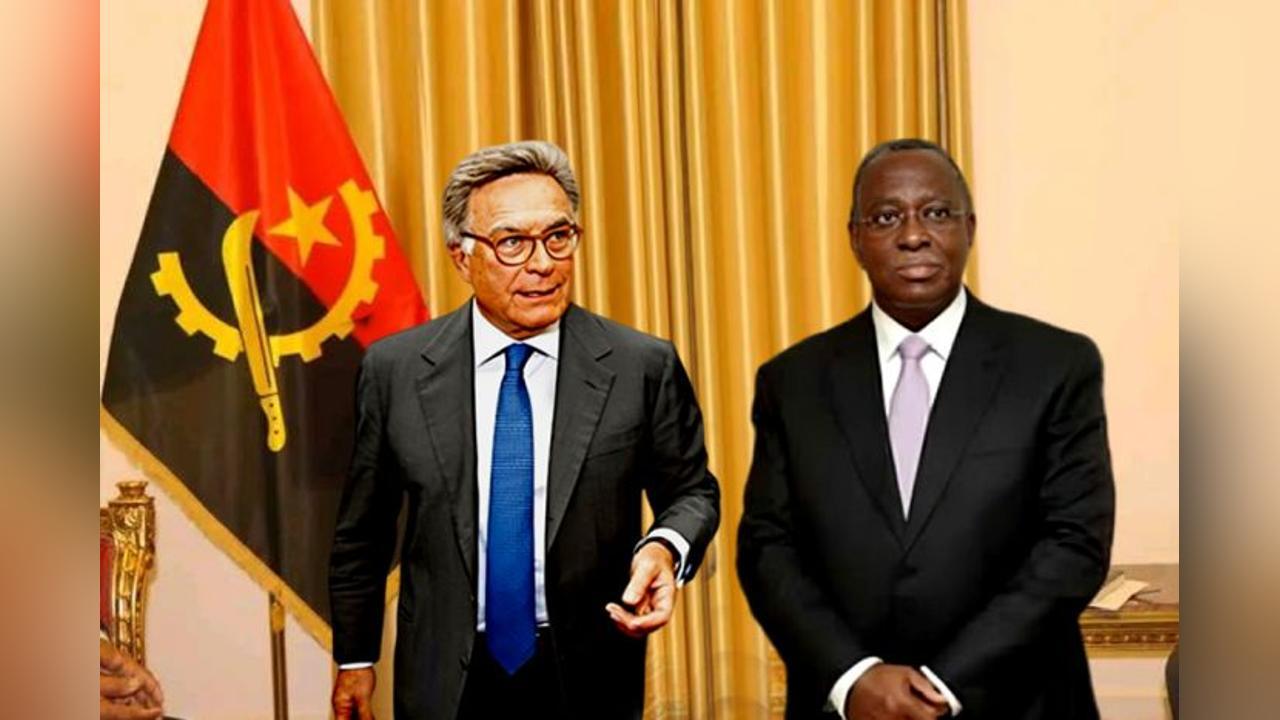Africa-Press – Angola. Former Angolan Vice-President Manuel Vicente stated that it was the Portuguese-Angolan businessman Hélder Bataglia who opened the doors of China to Angola, facilitating contact with the Chinese businessman Sam Pam, on a mission led by José Eduardo dos Santos.
The statements, made by Manuel Vicente on August 6 and November 5, 2020, were read today at a hearing at the Supreme Court, where the trial of generals Manuel Hélder Vieira Dias Júnior “Kopelipa” and Leopoldino Fragoso do Nascimento “Dino” has been taking place since March 10, accused of defrauding the Angolan state of millions of dollars.
Also on trial are businessmen Yiu Haiming, Fernando Gomes, and the companies Plansmart International Limited, Utter Right International Limited, and China International Fund (CIF). At the time of the events, Manuel Vicente was chairman of the board of directors of Sonangol EP and coordinator of Angola-China cooperation relations.
According to Vicente, it was under the guidance of José Eduardo dos Santos that he traveled to China several times to negotiate financing and investments.
The first amount raised was two billion dollars (1.6 billion euros), signed at the end of 2003, accompanied at the time by the Minister of Finance, José Pedro de Morais, and the governor of the National Bank of Angola, Amadeu Maurício.
“It was Hélder Bataglia who told José Eduardo dos Santos that he knew a Chinese businessman who intended to invest in Angola,” revealed the former president of the state-owned oil company.
The Portuguese-Angolan businessman Hélder Bataglia was one of the founders and president of Escom (Espírito Santo Comércio), the international arm of the Espírito Santo Group (GES) for Africa, and his name has appeared in several investigations linked to the collapse of GES and the power networks in Angola, although he has always denied any wrongdoing.
Manuel Vicente also stated that he was one of the creators of the company China Sonangol, based in Hong Kong, made up of three shareholders: Sonangol EP, with 30% of the shares, and Chinese businessmen Sam Pam and ‘madame’ Lo Fong, with 70%.
In Angola, the company only maintained a representative office, and Vicente served as chairman of the non-executive board of directors, with the Chinese partners taking over the executive part.
The former executive stated that China Sonangol and Sonangol EP were “completely distinct” entities, with no connection in their daily activities, but that the state-owned oil company sold oil to China Sonangol to “maintain the relationship that the Angolan state had with China” and “prevent the oil from being sold to a single Chinese entity.”
He also specified that China Sonangol was part of Block 3, operated by Sonangol Pesquisa & Produção, and that there was “a normal relationship between companies”.
China Sonangol was created in 2004 as a joint venture between the Angolan state-owned company Sonangol and Chinese partners represented by the private company 88 Queensway Group, led by Sam Pa and Lo Fong Hung.
Based in Hong Kong, it was one of the main hubs of Angola-China cooperation in the post-civil war period, channeling bilateral financing and infrastructure investments in exchange for Angolan oil, among other controversial transactions.
Faced with allegations that Sonangol EP had financed China Sonangol with US$200 million in 2005 and US$250 million in 2009, Manuel Vicente denied this, saying that these were “supplies” — contributions resulting from the Angolan state-owned company’s shareholding.
“These were Sonangol EP cash funds, and if they weren’t reimbursed, they needed to be collected,” he said, emphasizing the need to evaluate “the maturity time of investments to gauge the return on investment.”
According to Manuel Vicente, China Sonangol, as a client of Sonangol EP, received 27 oil shipments between 2004 and 2006, valued at more than $1.5 billion, for which it paid in full: “It is not possible for China Sonangol to receive oil and not pay.”
In his 34-page statement, read in court today, Manuel Vicente declared that neither “Kopelipa” nor “Dino” are partners in CIF Angola, clarifying that General Dino was only called in to help with the company’s restructuring, under the guidance of José Eduardo dos Santos.
He also rejected the idea that CIF had received payments in oil from Sonangol, considering it “impossible to use this mechanism to commercialize this product.”
The defendants face charges of embezzlement, fraud, document forgery, criminal association, abuse of power, money laundering, and influence peddling.
According to the indictment, the targeted companies were allegedly used to set up a scheme around a financing agreement between Angola and China, aimed at national reconstruction after the civil war, involving the China International Fund, its subsidiaries and Sonangol.
For More News And Analysis About Angola Follow Africa-Press






